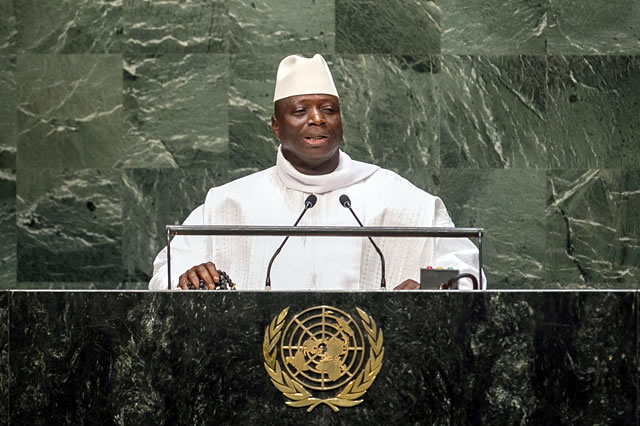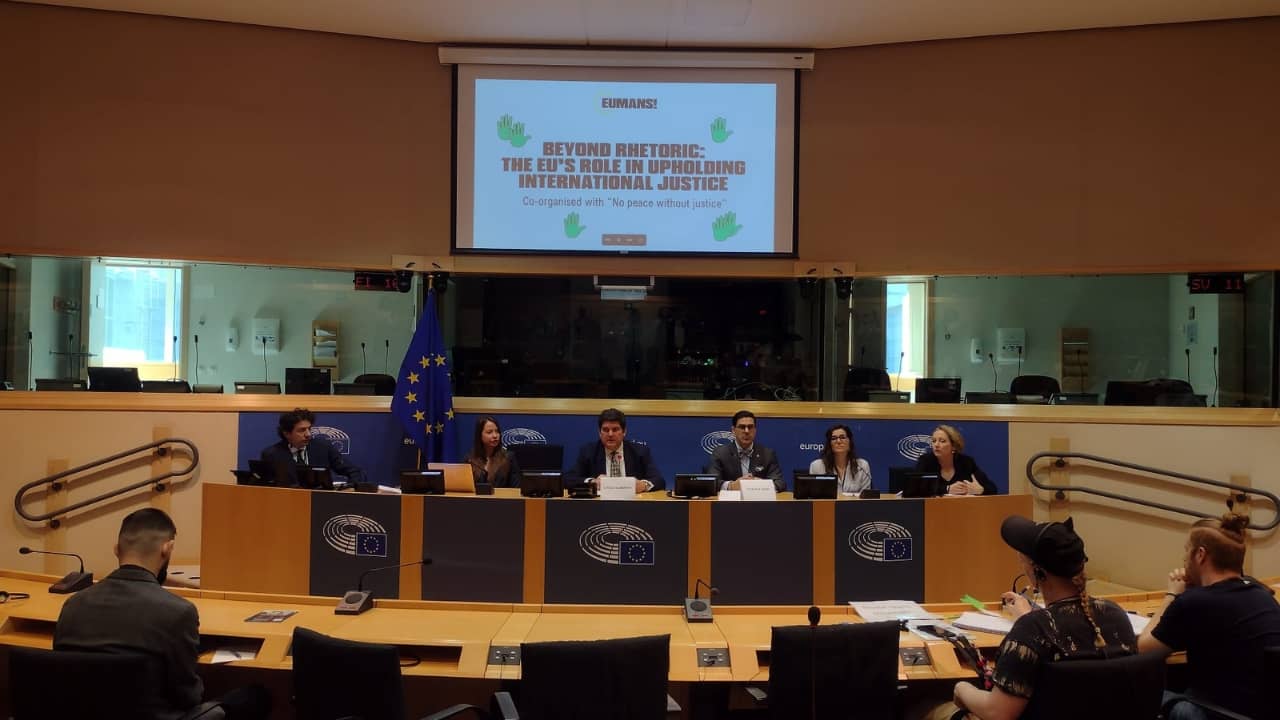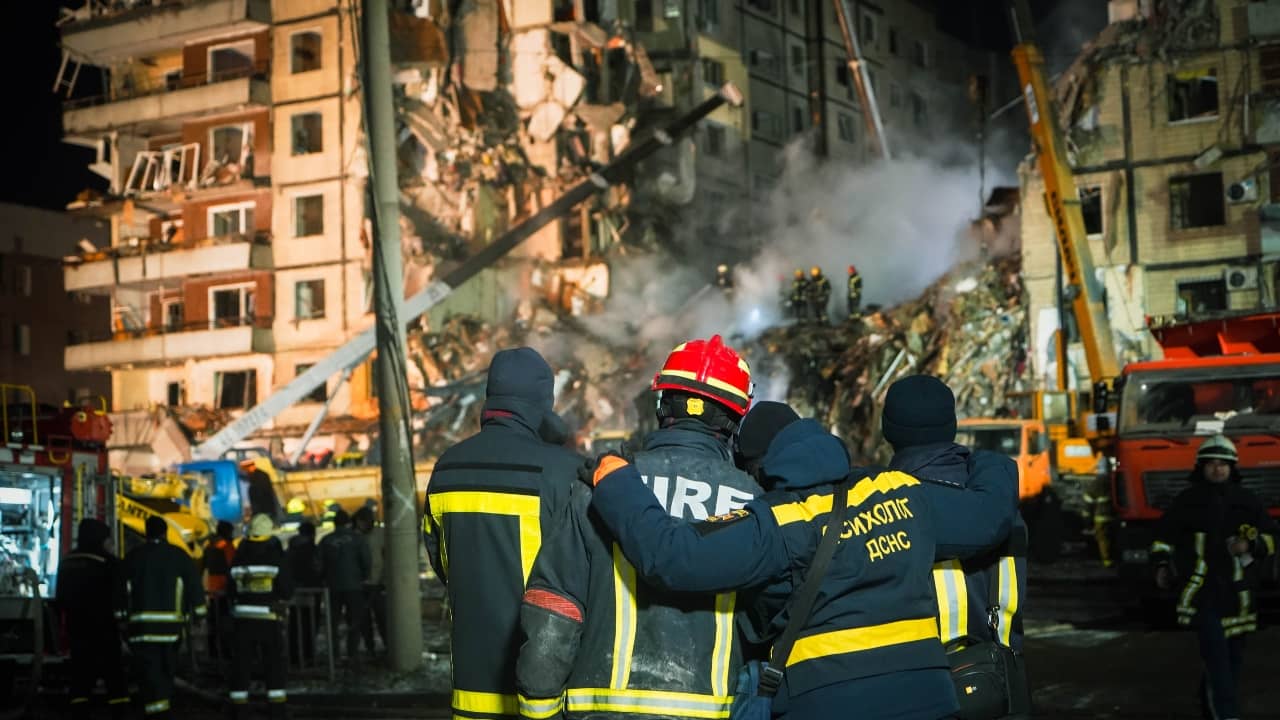
Members of Parliamentarians for Global Action (PGA) welcome the successful efforts deployed by the Economic Community of West African States (ECOWAS) and its Member States, which resulted in a peaceful transfer of power in the Gambia last week.
Mr. Yahya Jammeh – who has occupied the Presidency since 1994 – had lost the 1 December 2016 elections to Mr. Adama Barrow. Mr. Jammeh immediately conceded his defeat in a public speech, but on 10 December he rejected the results – which prompted PGA Members to adopt a resolution (in French), during PGA’s Annual Forum in Dakar, urging him to accept the consequences of the democratic process under the Constitution of the Gambia. Challenging the independence of the electoral commission, Mr. Jammeh declared that he would use all legal recourses before the Supreme Court. Concerns were also raised when he quickly nominated officers to key positions within the army. Newspapers were banned and access to social media was blocked.
Faced with a preoccupying crisis, the ECOWAS stood by President-elect Barrow and, after mediation efforts failed, issued an ultimatum to the Gambian authoritarian leader, asking him to leave power before 18 January 2017 or face a regional military intervention. This move was backed by the United States of America, the European Union, the African Union (AU) and the United Nations (UN) Security Council, even though not reflected in a formal authorization to use force under Article 42 of the UN Charter. Despite most members of his Cabinet having resigned and the increasing international pressure, Mr. Jammeh seemed determined to stay in power and, on 18 January – two days before the end of his term – he declared a state of emergency in the country. This was followed by a vote in Parliament to extend his term for six months.
On 19 January, Mr. Barrow took his presidential oath in the Gambian Embassy in Dakar (Senegal) where he had fled, while ECOWAS troops were entering the Gambia without any opposition from the national army. In parallel, last resort mediation efforts led by Mr. Alpha Condé and Mr. Mohamed Ould Abdel Aziz, respectively Presidents of Guinea and Mauritania, finally gave results when Mr. Jammeh made an announcement on public television during the night of 21 January that he accepted to resign. The former President left Banjul on 21 January for Malabo (Equatorial Guinea), allowing the new President to prepare his return to the Gambia.
PGA congratulates the ECOWAS for the leadership it took in this situation and the peaceful resolution of a crisis that could have caused much suffering to the civilian population. Pursuant to Chapters VII and VIII of the UN Charter, the regional organization and its members successfully used the threat of the use of force in reply to the threat to international peace and security that was posed by the risk of civil war in the Gambia. This sub-regional cooperation was successful in preventing the commission of any international crime.
PGA also welcomes President Adama Barrow, as well as Vice-President Fatoumata Tambajang, and shares the hope of the Gambian people that the new administration will transform the country into a law-abiding nation committed to human rights and the fight against impunity. Whether Mr. Jammeh stays in Equatorial Guinea, finds refuge elsewhere or eventually comes back to the Gambia, competent Courts shall investigate any serious human rights violation that may have characterized his decades-long administration under relevant applicable law.
While not all details of the agreement reached between the parties are yet known, a joint ECOWAS, AU and UN statement has been released, which encourages the government of the Gambia to “ensure that there is no intimidation, harassment and/or witch-hunting of former regime members and supporters” and other countries to “ensure that […] former President Jammeh and his family do not become undue targets of harassment, intimidation and all other pressures and sanctions” (our emphasis). PGA finds the wording of this statement concerning and wishes to underline that, although persecution of individuals on grounds of their political beliefs or affiliation cannot be tolerated under any circumstances, investigations and prosecutions pursuant to international law should not and cannot be considered as “witch-hunting” or “undue sanctions”.
President Adama Barrow has already committed to establishing a Truth and Reconciliation Commission. PGA Members welcome this step and emphasize the urgency for the new administration to fully embrace its international obligations and the right to justice and reparations for victims of crimes of international concern. To do so, PGA calls upon the Gambia to halt the process of withdrawal from the Rome Statute of the International Criminal Court initiated by Mr. Jammeh’s administration in October 2016 and which will take effect on 10 November 2017. As reiterated in the Dakar Plan of Action adopted during the 9th Consultative Assembly of Parliamentarians on the International Criminal Court and the Rule of Law (CAP-ICC), PGA Members hold the firm belief that membership in the Rome Statute is a very important measure to prevent mass atrocities, given that “impunity for perpetrators of international atrocities only serves to increase the likelihood of new, equally horrific crime”.
As a parliamentarian from a country that is also facing a difficult election, I could not be happier that the Gambian people managed to make their voices heard and to enjoy a peaceful transition. This is a great success for Africa and it should stand as a warning to other heads of State that might be keen on overstaying in office. I call on my Gambian colleagues to renew their commitment to democratic values and human rights, and to engage their country in a meaningful cooperation with his neighbours. Hon. Dieudonné Upira Sunguma, Member of the National Assembly of the Democratic Republic of Congo, PGA Board Member
The peaceful resolution of the crisis in the Gambia is of course welcomed throughout Senegal and I am very proud of the leadership my country has taken on this issue. As a Member of the ECOWAS Parliament, I am also very glad to see the sub-region join forces and efforts to ensure that the blood of civilians would not be shed in one of our Member States. I remain committed to promoting human rights and international justice within the ECOWAS Parliament so that the organization can pave the way in Africa and in the world in that regard. I hope that my peers in the Gambian Parliament will do the same and ensure that justice is not sacrificed in this delicate transition. Hon. Mamadou Lamine Thiam, Member of the National Assembly of Senegal and Member of the ECOWAS Parliament, PGA Board Member
Contacts:
|
New York Dr. David Donat-Cattin |
The Hague Ms. Marion Chahuneau |




